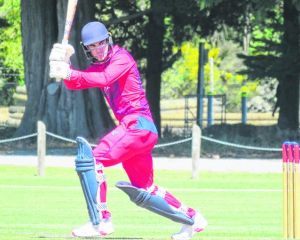
The incident has prompted the Christchurch City Council to explore putting safety bollards in as part of a wider review of security at the interchange on the corner of Colombo and Lichfield Sts.
The incident happened just after 6pm on a Friday in September and was revealed to city councillors at a briefing on security at the interchange last week.
City council head of facilities and property Bruce Rendall said it was lucky no one was injured. People were walking into the interchange at the time.
Police were called immediately and are making enquiries into the matter.
A city council spokesperson said it had not received anything back from police since the incident and was unaware if the driver had been located.
Police also could not provide any details to The Star when contacted this week.
The incident has prompted the city council to look at installing bollards to keep pedestrians safe, one of several initiatives planned for the facility.
Hornby Ward city councillor Mark Peters said the donuts incident came as a “bit of a surprise”.
“It’s ridiculous to hear about this stuff. I think police and other relevant authorities need to be able to crack down a bit when needed.”
He supports the introduction of bollards.

Rendall said they were arrested.
He said initiatives already taken by the city council appear to have improved the safety environment, although perceived safety issues remain.
In terms of safety and security at the bus interchange, they have security guards, CCTV and beat police who visit several times a day.
Other measures include working with homeless outreach services, and a safe space for youth called the igloo.
Rendall told councillors at the briefing “exotic” approaches also seem to be successful.
“We’ve also trialled the use of classical music in hangout areas to try and deter hanging out, which seems to have worked quite nicely.”
Foot traffic at the interchange has increased by a thousand people a day over the past 18 months.
That was likely to increase again after One New Zealand Stadium opens its doors, said Rendall.
“While there had been an increase in the number of people passing through the interchange, there had been a decrease in serious issues,” he said.
Rendall said future key initiatives being considered include real-time AI CCTV monitoring to provide enhanced surveillance capabilities.
“Not from a facial recognition perspective which is often a concern, but just to help us see and draw our attention to out-of-the-ordinary events.”

Teenager Ruby-Grace Miller, who campaigned for better security at the interchange in June, said the new security initiatives were a “step in the right direction”.
The introduction of the Igloo youth safe space has made a “phenomenal change”, and has made her and her friends feel safer while waiting for their bus,” the 17-year-old said.
In June she presented a survey of 235 students in which 74% reported feeling unsafe or uncomfortable at the interchange, with more than 80% saying they had seen at least one instance of aggressive behaviour, intoxicated people, vandalism, property damage, security officers acting unprofessionally, or had felt watched or harassed.













